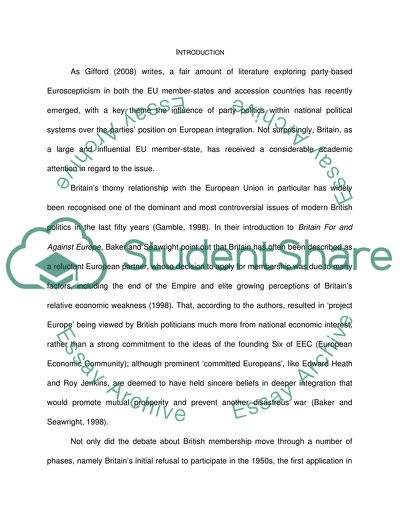Cite this document
(EU Economic Integration: a Tool of the Political Gadgetry Essay - 3, n.d.)
EU Economic Integration: a Tool of the Political Gadgetry Essay - 3. https://studentshare.org/politics/1761947-discuss-the-extent-to-which-economic-integration-within-the-eu-has-been-subordinated-to-the-achievement-of-political-objectives
EU Economic Integration: a Tool of the Political Gadgetry Essay - 3. https://studentshare.org/politics/1761947-discuss-the-extent-to-which-economic-integration-within-the-eu-has-been-subordinated-to-the-achievement-of-political-objectives
(EU Economic Integration: A Tool of the Political Gadgetry Essay - 3)
EU Economic Integration: A Tool of the Political Gadgetry Essay - 3. https://studentshare.org/politics/1761947-discuss-the-extent-to-which-economic-integration-within-the-eu-has-been-subordinated-to-the-achievement-of-political-objectives.
EU Economic Integration: A Tool of the Political Gadgetry Essay - 3. https://studentshare.org/politics/1761947-discuss-the-extent-to-which-economic-integration-within-the-eu-has-been-subordinated-to-the-achievement-of-political-objectives.
“EU Economic Integration: A Tool of the Political Gadgetry Essay - 3”. https://studentshare.org/politics/1761947-discuss-the-extent-to-which-economic-integration-within-the-eu-has-been-subordinated-to-the-achievement-of-political-objectives.


